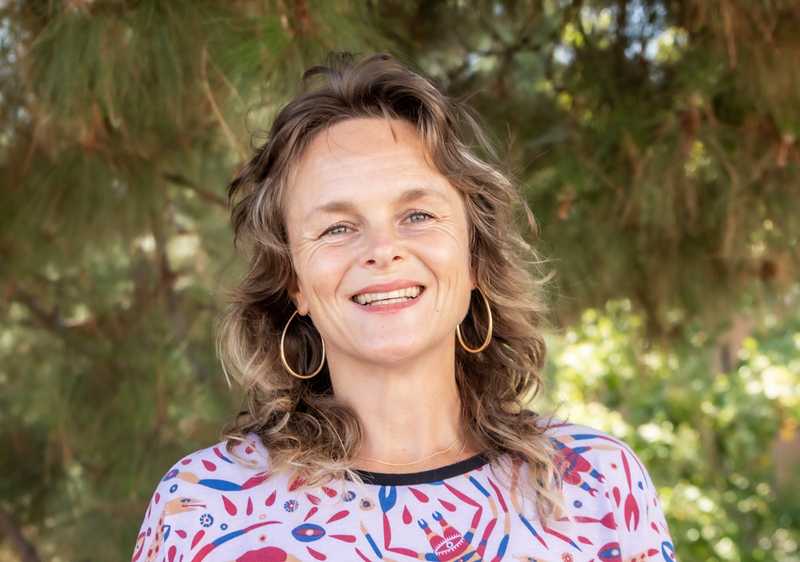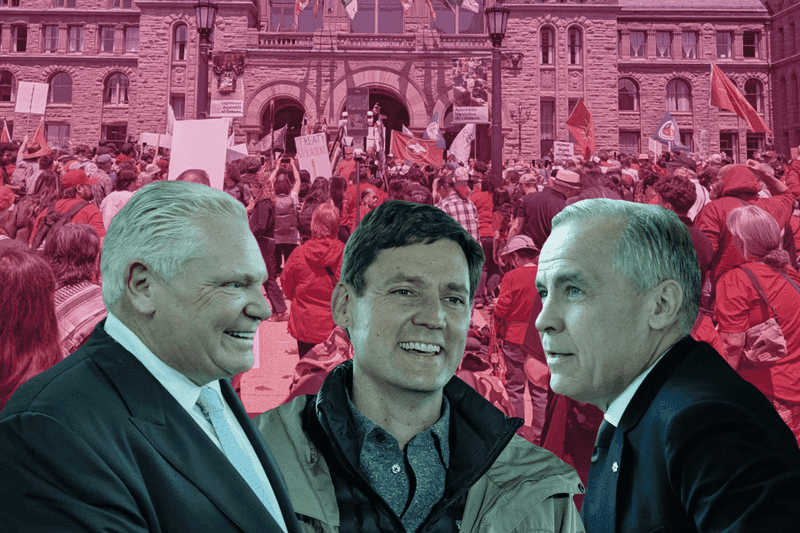
The quip is often attributed to U.S. oil tycoon J.P. Getty, and it offers a provocation: What if mass indebtedness is not simply a liability, but also a potential collective asset or leverage point in the fight to enact the new and radical economic relationships we need?
Thinking across scales—household debt, municipal debt, sovereign debt—debt’s ubiquity may present the opportunity to transform indebtedness from an issue of isolation and vulnerability to a platform for collective action. This is the provocation of debtors’ unions. Debt organized collectively as leverage in debt strikes (and their threat) can force the financial system to recognize people and ecosystems, in addition to banks, as systemically important and too big to fail. Debtors unions show us the power we need not only to challenge the financial system, but to remake it entirely.
Household debt (often misleadingly referred to as “consumer debt”) is both systemic and radically unequal in the United States and beyond. Black and brown households are disproportionately indebted across all categories: student debt, medical debt, housing debt, debt incurred in the criminal punishment system. (Yes, the United States charges people for their own incarceration.) Neoliberalism has meant that the very things people need to survive and thrive—healthcare, education, a home—bury families under debts they cannot escape. Financialization has meant that these debts generate spectacular profits for increasingly powerful financial institutions.
Household debt can be isolating and shameful – making us afraid to pick up the phone or open the mail. Indeed, debt is a form of racialized social control and has been on U.S. soil since the founding fathers used mortgages to dispossess Native Americans of their lands. More recently, the US army explained that they beat their 2019 recruiting goals by targeting students in debt. The head of Army recruitment explained, “One of the national crises right now is student loans, so $31,000 is [about] the average. [...] You can get out [of the Army] after four years, 100 percent paid for state college anywhere in the United States." To be indebted makes us vulnerable to predators of all kinds: predatory lenders, predatory debt collectors, and predatory military recruiters.
Debtors’ Unions, something I’ve been organizing with the Debt Collective since 2014, reimagine debt from an experience of individual isolation and shame to a platform for collective action. Our first union of people who held debts from for-profit colleges has generated over $1.5 billion in debt abolition, and counting. The 2020 Uprisings in the wake of the murders of George Floyd, Breonna Taylor, Ahmaud Arbery, Sean Reed and Tony McDade brought household debt and municipal debt powerfully into the conversation around anti-Black violence. During the Movement for Black Lives Week of Action in June 2020, Wednesday was themed “Community Relief” and demanded “rent cancellation, mortgage cancellation, a moratorium on utility and water shutoffs and a cancellation of student, medical, and other forms of debt.”
When the Coronavirus tipped the world into economic freefall, countless people across the United States and beyond didn’t pay their rent or bills because they didn’t have enough money. Some did so quietly, and others went public, boldly declaring that they couldn’t pay and that they shouldn’t have to pay, either.Can’t pay, won’t pay. In the U.S., governments and financial institutions paused mortgage and bill collections, ended utility shutoffs for overdue accounts, halted foreclosures and evictions, and placed a six-month moratorium on student debt payments. It turns out that changing the rules that dictate our daily financial agreements is possible after all, and it can happen with remarkable speed. This crisis offers a chance to do more than just hit the pause button and throw a few crumbs at people in distress, resuming “business as usual” as quickly as possible. This is an opportunity to organize around reparative public goods and the future of finance. To do that, we need more than protest; we need power. Debtors’ unions offer us that power.
Debtors unions are available not only to households but also to municipalities. What if municipalities bargained collectively over loan terms, interest rates, and other financial deals? In 2012 the city of Oakland boycotted Goldman Sachs over predatory terms that plunged the city into unpayable debt. Saqib Bhatti encourages us to think creatively about how cities acting in concert can build leverage against financial entities. “American taxpayer dollars are a tremendous source of bargaining power,” he wrote. “If [a creditor] has to jump through a few hoops to get it, it will. This gives public officials the leverage to demand lower interest rates and fairer terms, freeing up scarce funds for community services like parks, libraries and schools.” Even better would be to use that leverage to build public banks, decommodified money, and an alternative financial ecosystem of public-, cooperative-, and non-ownership.
Debtors unions must work transnationally as well. Mass indebtedness connects those of us living in the United States with millions of others around the world. It connects Ferguson, Missouri where the police shot and killed Michael Brown and the courts derive their operating budgets out of the pockets of poor Black residents, to Greece, Puerto Rico, Bolivia. These are not theoretical links, but literal connections through shared creditor institutions like Goldman Sachs, JP Morgan Chase, the World Bank, and the US Federal Reserve, the liquidity provider to the world. Indebtedness is a lived experience from which solidarity can be built, and it is also a latent radical geography of global people power. Alone, our debts are a burden; together, they make us powerful.
We all watched with baited breath as Syriza swept into power, and then exhaled knowingly when Tsipras capitulated to more loans and more austerity measures. This outcome in Greece demonstrates how difficult it is to conduct anti-austerity politics in one country alone, when financial relationships are transnational, and monetary imperialism remains unchallenged. In Puerto Rico—the heart of US empire— where the struggle against creditors is also a battle between the victims of climate change and its profiteers, a debtors’ movement was underway before Hurricane Maria struck. We need international debtors’ unions to secure transnational victories over transnational financial actors. Indebtedness is a bond that ties us together across borders, and we should use the power and counterintuitive financial leverage of those bonds to refuse our debts and build a world of reparative public goods.
Reparative public goods center redress and reparation in enacting what have for too long been referred to as “universal” public goods. The history of ambitious programs to deliver public goods in the United States and beyond—the New Deal and the Millenium Development Goals come to mind—offers an archive of racialized dispossession, exclusion, and exception. Where programs for “universal” public goods do not intentionally center the redress of white supremacy and dollar supremacy, settler colonialism and class power, patriarchy and growth ideologies, they reproduce them.
Other worlds are possible, but they will require a radical transformation of our financial relationships. Debtors unions can help us build the power we need to enact the future of finance that will allow us to fund transnational reparative public goods. Debtors unions must politicize central banks, challenge the global currency hierarchy, and build alternative financial ecosystems of public-, cooperative-, and non-ownership. The goal is to create local and transnational financial relationships that are not merely non-extractive, but affirmatively reparative and regenerative.
Racial capitalism is a centuries-old pandemic. It took shape in colonialism, the transatlantic slave trade, and the dispossession and attempted genocide of native peoples across the Americas. It has produced extraordinary intergenerational wealth for the few, and extraordinary violence, theft, poverty, and despoliation for the many. It has left us with extraordinary debts to one another. The time has come to default on the powerful, so we can finally honor our true debts to one another and to our planet –to all relatives, forever, as The Red Nation puts it. Through strategic campaigns of economic disobedience and debt refusal, we can redress, repair, resource, and plan our present, and enact our future.





